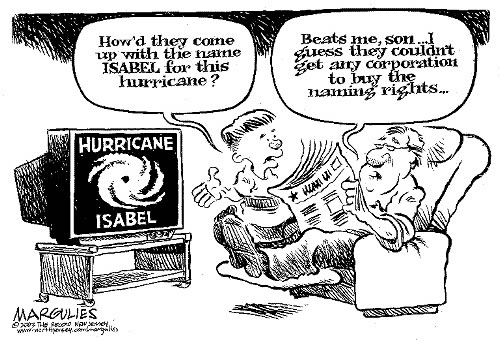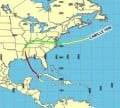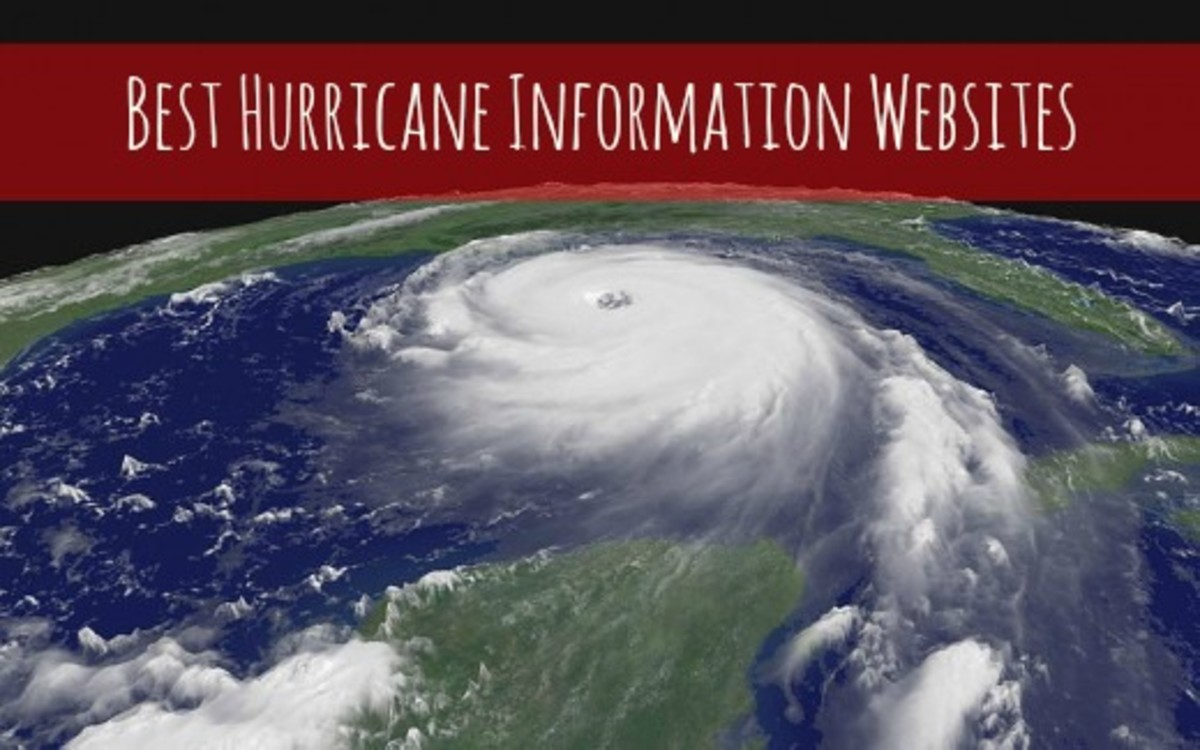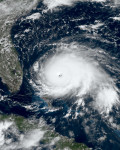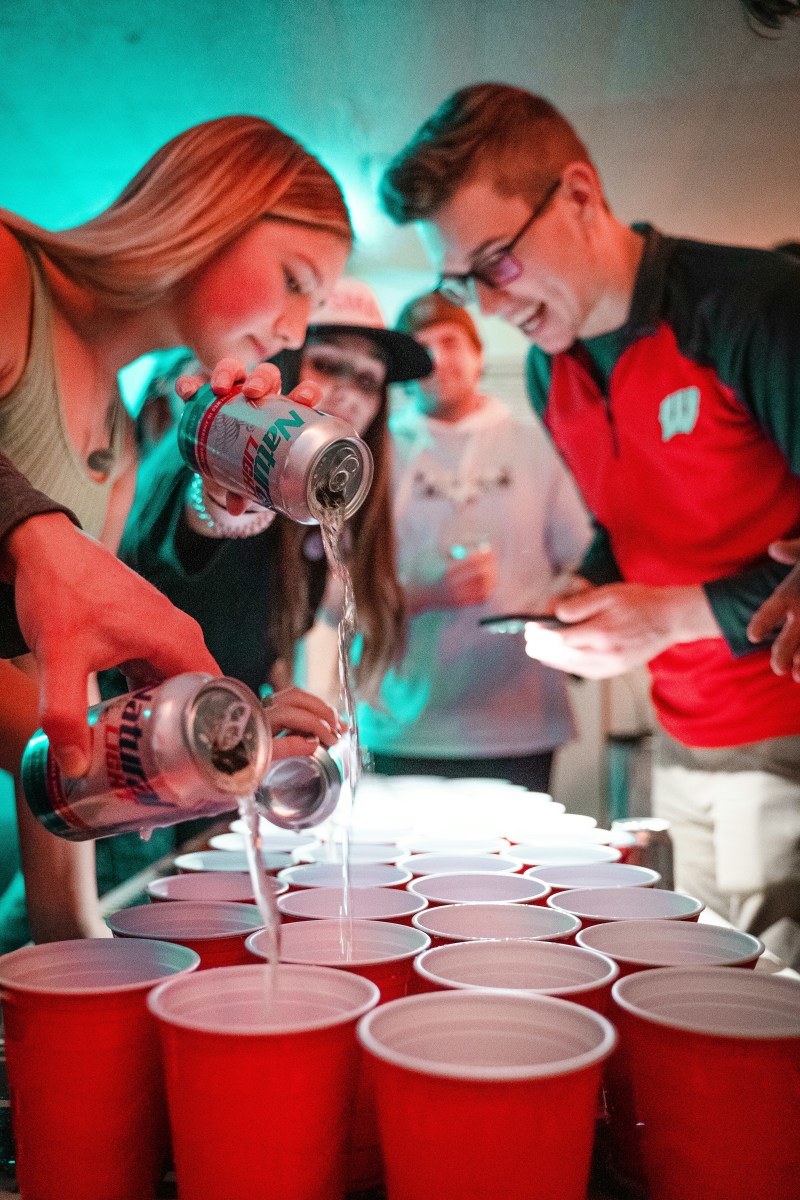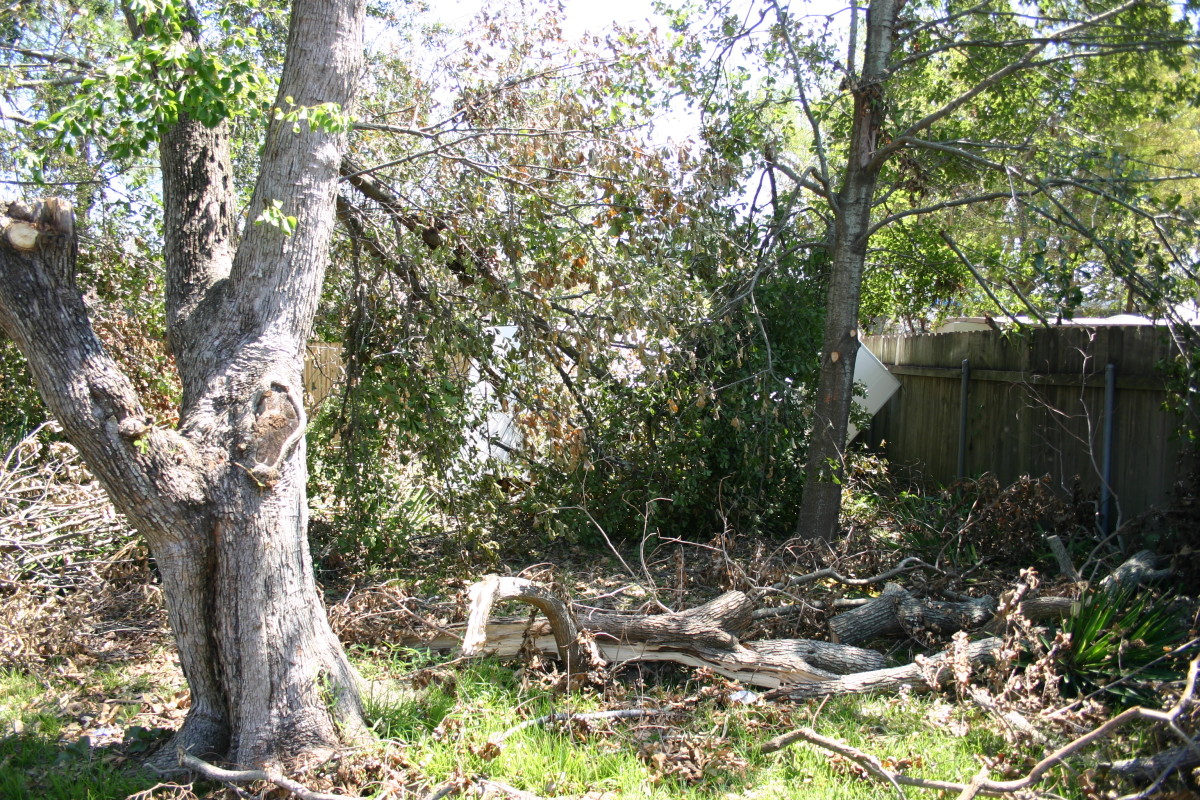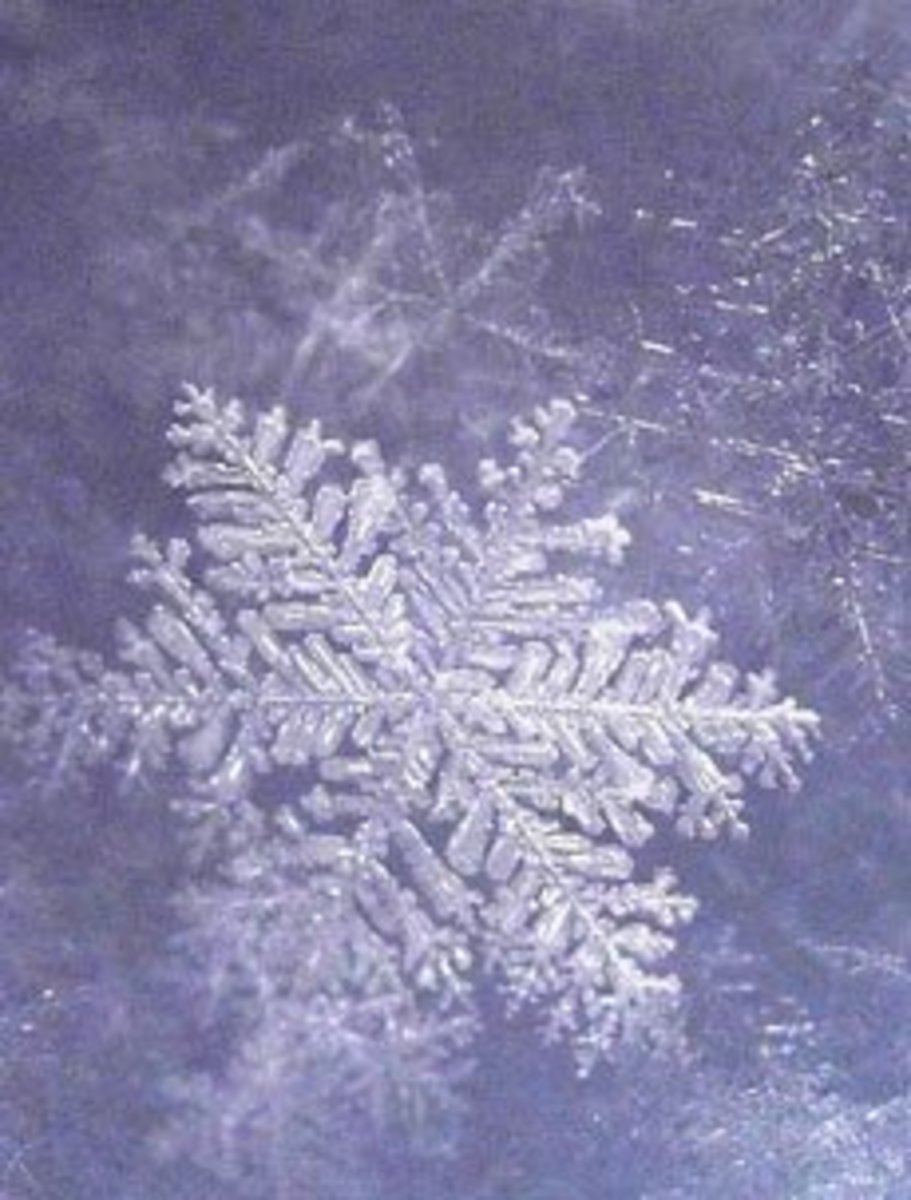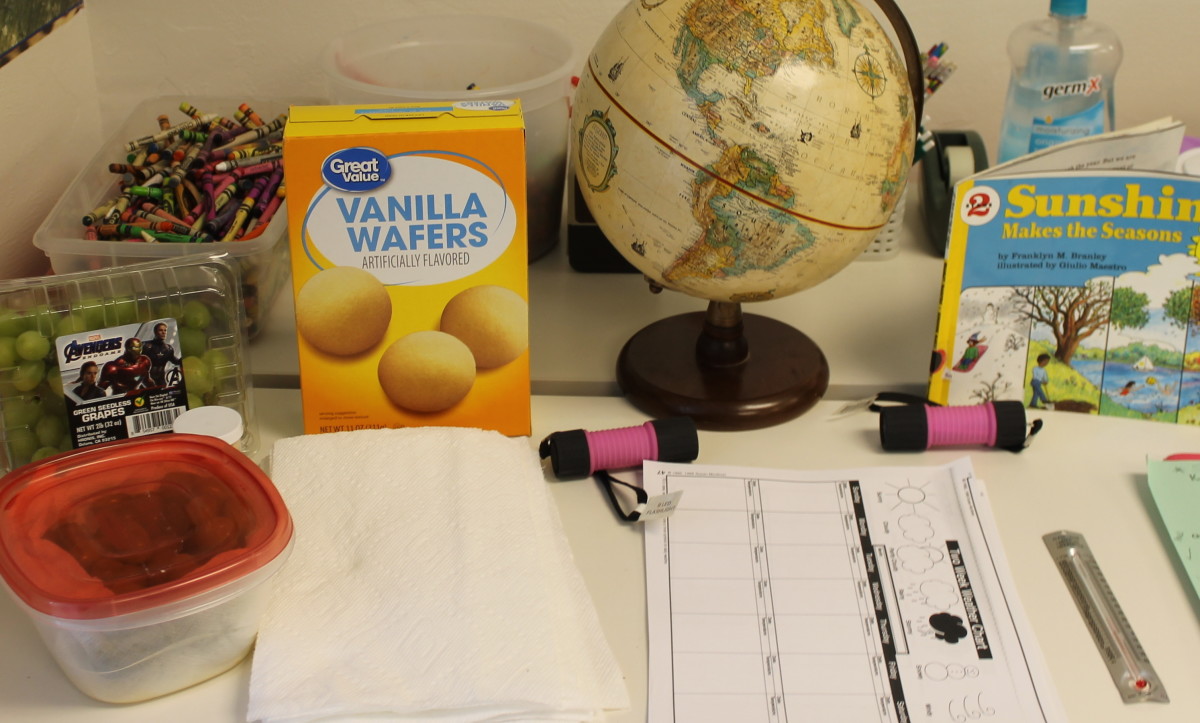How Hurricanes Get Their Names
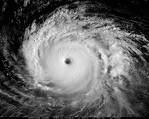

As I write this, I am barely able to contain my excitement. After six long years of waiting, finally I will get my opportunity to take the world by storm...literally.
If not this year, than in 2014 for sure...or 2020...
I lost my last chance in 1969 when Hurricane Laurie threatened the Mexican coast as a promising category 2 hurricane and then fizzled into a weak tropical depression at landfall. How disappointing! But now I have another chance at immortality and I'm banking on global warming to assist me.
I no longer sneer at gas-guzzling SUV's clogging the roads and messing with my air quality. Instead, I give them a big thumbs up as I drive by. Bring it on! In the evenings, I visit the local bovine population and encourage them to be more flatulent. Every little bit helps. When Hurricane Laura arrives, I want her to be able to deliver. Long after I'm gone, old people will be talking. "Remember Laura?" they'll say with awed respect, trembling in fear at the memory of my namesake...
At the very least, I won't have to repeat or spell my name. That's what happened to my boss' wife, Katrina. Prior to August 29th, 2005, she could be overheard on the phone saying, "This is Katrina. No...Katrina. That's K-A-T-R-I-N-A. Katrina." After her namesake pretty much wiped New Orleans off of the map, she never had to spell her name again. "This is Katrina. Yes...as in the hurricane." Although, come to think of it, she didn't really handle fame very well at all and after a few months started referring to herself as Katie. That's K-A-T-I-E.
I've already decided that if Hurricane Laura lives up to my standards, I'll make my mother extremely happy and use the name she slapped on me at birth. If, however, it merely spits on a few hapless victims and destroys only a decrepit doghouse, I'll simply deny my birthright forever and go by Laurie.
So as Ike heads toward Galveston, while Josephine tries to pull herself together on the outer edges of the Caribbean Sea and some rather messy bad weather lurks in the middle of the Atlantic Ocean (probably the future Kyle)...Laura is still waiting to be born. There's plenty of time. It's only September and the end of hurricane season is still a couple of months away.
All of this thinking however made me curious about how hurricanes actually came by their names. It was Friday, there was nobody in the office but me, so in the spirit of the great American employee, I decided that googling was more appealing than actual work. This is what I discovered...
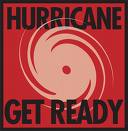
Although the practice of naming storms has been around for a few hundred years, it has undergone several transformations. Initially, for example, in the West Indies hurricanes were often named after the closest saint's day. So you could, in theory have a Hurricane San Felipe in one year and a Hurricane San Felipe the second in a following year. Later, hurricanes would become identified by latitude and longitude positions. Unfortunately, as you can see...both of these methods grew rather cumbersome.
The practice of using women's names actually began during World War II. Most attribute this method to the influence of George R. Stewart's 1941 novel "Storm," in which the protagonist is a large storm, named Maria (pronounced the same as Mariah), that terrorizes the California coast. Evidently dissatisfied with this system, the United States adopted its own confusing plan in 1951 to name storms using the phonetic alphabet, as in...Alpha, Bravo, Charlie, etc.
By 1953, the National Hurricane Center, put an end to this nonsense and returned to using just female names. In 1978, the practice of alternating names between genders came into existence for designating storms in the eastern Pacific. The following year, this practice was adopted for the Northern Atlantic region as well. Most attribute this change to the pressure of the feminist movement and is probably an early example of political correctness.
At the same time that the gender changes were made, various organizations thought it would be in the best interest of everyone to also reduce the number of possible name choices. Each region, such as the Northern Atlantic, the Western North Pacific, the Central North Pacific and the totally fictitious East Northwestern Central Pacific, devised their own lists of agreed upon names. To keep things simple and reduce the chance of cerebral implosion, we'll use the Northern Atlantic as our example for the remainder of this discussion.
In the North Atlantic, there are six lists that are rotated annually. No longer in the hands of the National Hurricane Center, these lists are compiled and maintained via international meetings held by the World Meteorological Organization. Since the WMO is a specialized branch of the United Nations, this explains why some names have a rather European influence.
Hurricane Names List
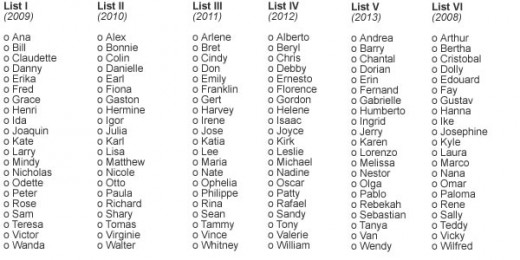
Retired Names of Hurricanes

Armed with these simple lists, the Tropical Prediction Center (aka National Hurricane Center) in Miami, Florida keeps a constant vigil over the oceanic breeding grounds. Once a system meets the appropriate criteria, counterclockwise circulation and wind speeds in excess of 38 mph, it is given a name from the list for the current year. As you may have noticed, Q, U, X, Y and Z have been omitted on this list because of the scarcity of acceptable names beginning with those letters. I'm sure if the WMO had included the parents of the former Talulah Does the Hula in Hawaii in their decision making process, these letters could have been utilized.
Occasionally, the number of storms exceeds the available names. This happened most recently in the year 2005, when the list of 21 hurricane names was surpassed by six additional storms. For these rare cases, the Greek alphabet is utilized to supplement the list. In 2005, the 22nd - 27th storms were subsequently named Alpha, Beta, Gamma, Delta, Epsilon and Zeta.
Despite the list, eventually certain names are retired. For obvious reasons of sensitivity, storms that are particularly costly in both lives and property are stricken from the list at an annual meeting of the WMO and replaced with a new name of the same gender and letter. The retired name is not used again for at least a decade...if ever. The only exception to this retirement rule occurs in named storms prior to 1979 and the advent of the permanent rosters. In 1966, the name "Fern" was substituted with "Frieda" for no apparent reason. Convinced that there was more to this cover up than meets the eye, I did some research and came up with this...
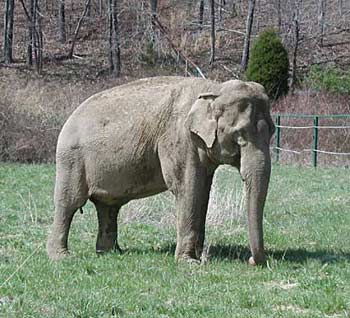
This is the notorious Frieda. Born in the wilds of Asia in 1966...captured...separated from her family and sent to America destined to a life performing in circuses. Coincidence? I think not.
As I drove home from work today, I experienced an epiphany of sorts...either that or the relentless Arizona sun beating down on my head as I drove my convertible with the top down had finally succeeded in frying my few remaining brain cells.
Let's face it...hurricanes are expensive. It costs money to evacuate people, shelter them and then rebuild once a storm has passed. This cost is absorbed by our tax dollars and supplemented with donations. What if there was a better way to handle this debt? What if we could convince somebody else to foot the bill?
That's right, corporate sponsorship and naming rights! Think about it for a moment. NASCAR plasters its vehicles with all sorts of company names. We have Monster Stadium in San Francisco, Coors Field in Denver and the Verizon Wireless Arena in Manchester, NH. Currently the Portland Trailblazers are seeking a corporate sponsor for their beloved Rose Garden. Institutions like schools, places of worship and hospitals have traditionally granted donors the right to name facilities in exchange for contributions. Securing naming rights for stadiums, theaters and other public gathering places is seen by companies as a form of advertising and deals worth millions of dollars have been consummated.
Picture it with me for a moment...
"Well, Bob...we thought perhaps Hurricane Microsoft was fizzling out...but it only appears to be rebooting."
Or...
"We'll be watching Hurricane Maxwell House closely as it continues to brew off the Florida coast."
I'll admit for some companies, being so closely associated with death and destruction might be considered somewhat detrimental to their image. However, if they can convince the male population to buy anything as long as they slap the image of a sexy woman on it, I'm sure they can find a way to peddle a hurricane to their advantage. Just so long as they avoid such misleading statements as "this hurricane has been brought to you by the makers of..."
